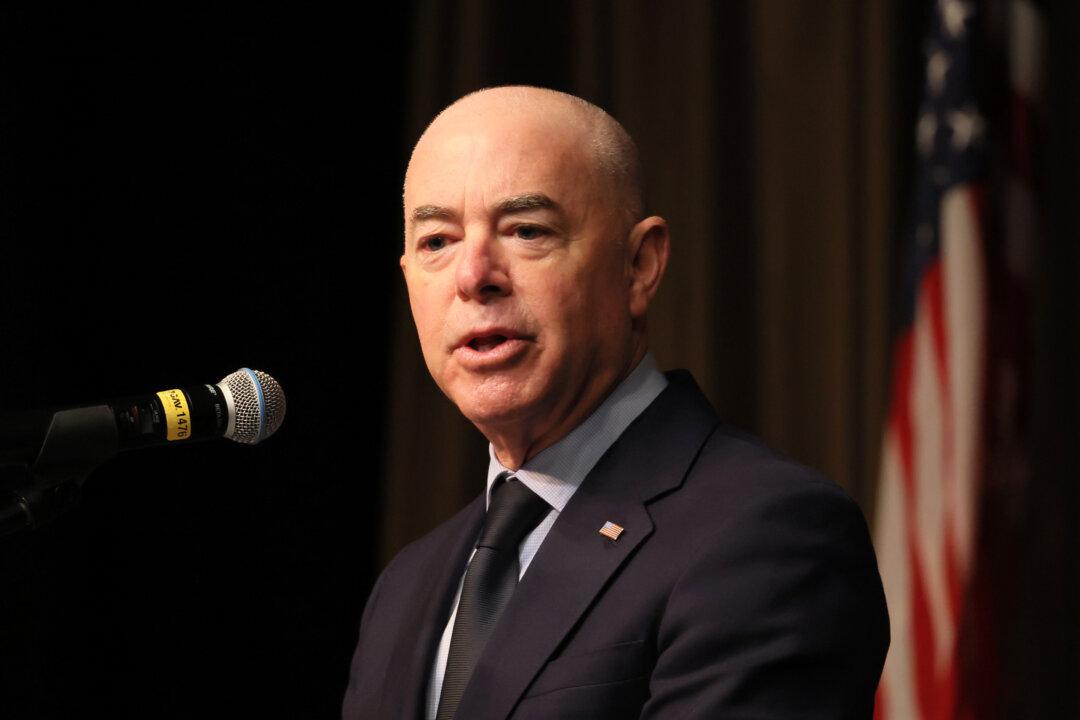President Joe Biden’s administration has released a plan to deal with the expected surge in illegal immigration across the U.S.–Mexico border once the emergency Title 42 policy is terminated in May.
Homeland Security Secretary Alejandro Mayorkas laid out the plan in a 20-page memorandum, outlining a series of “pillars” that officials are already putting into place.





